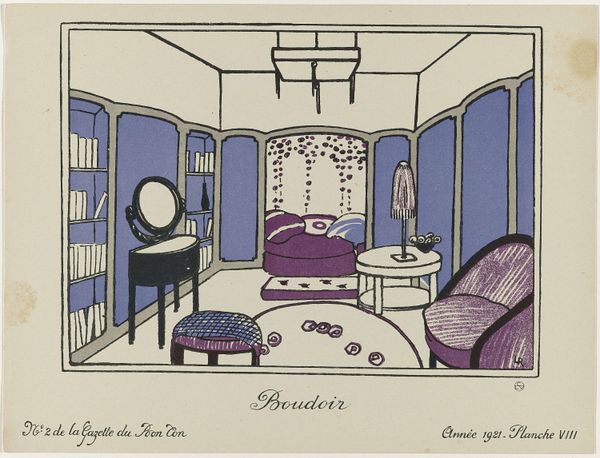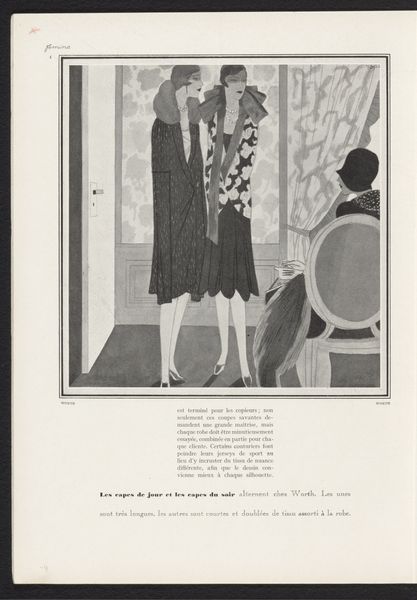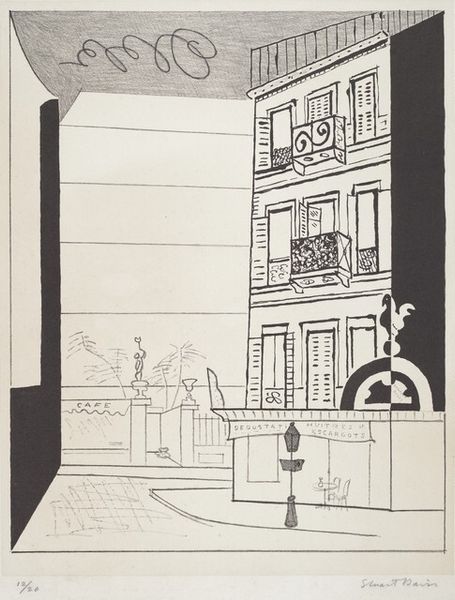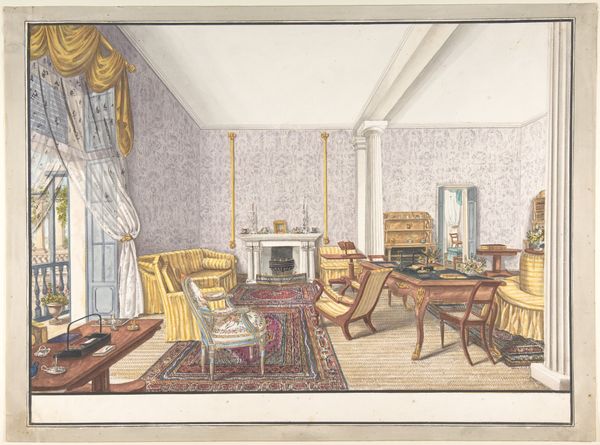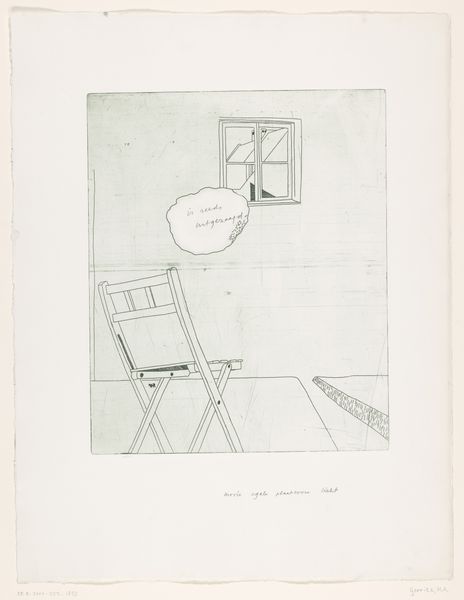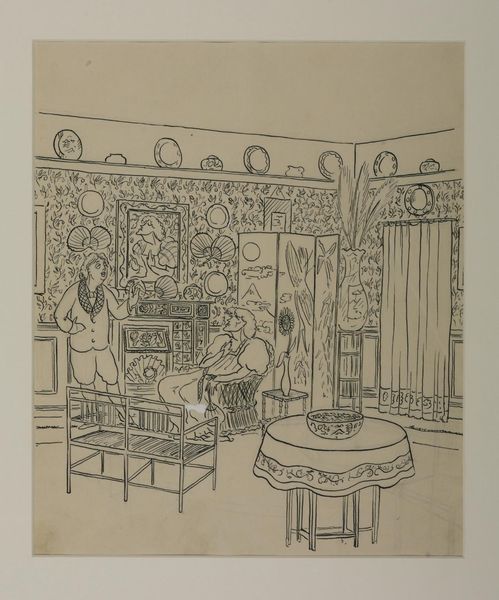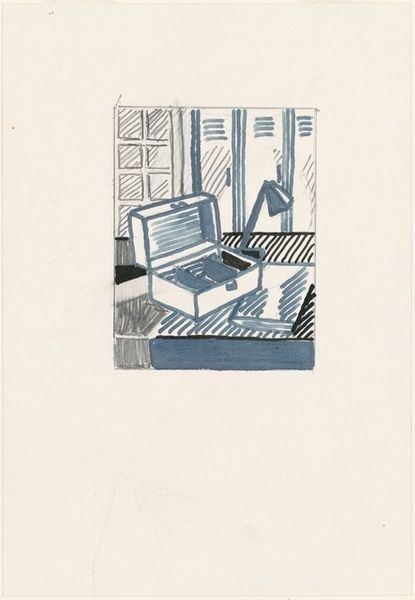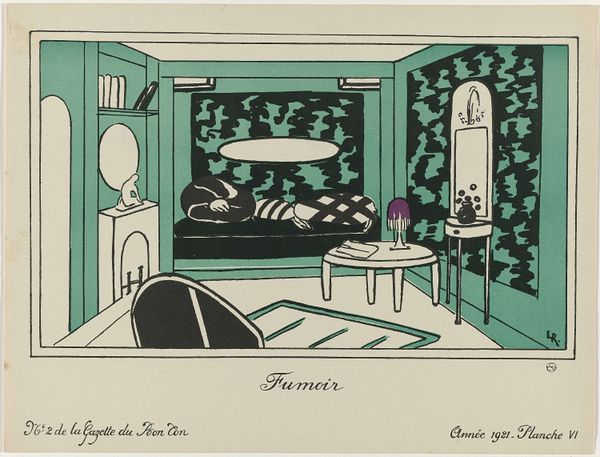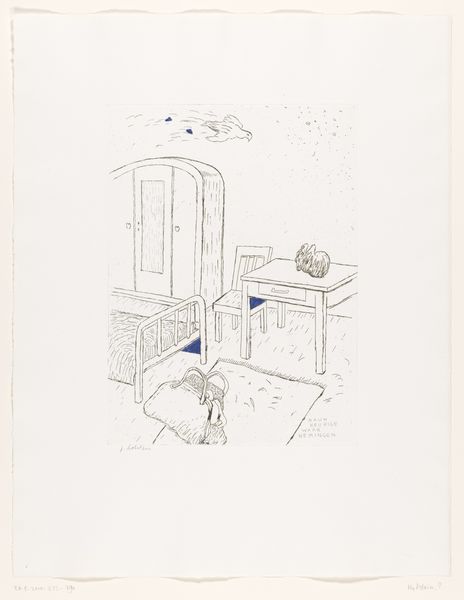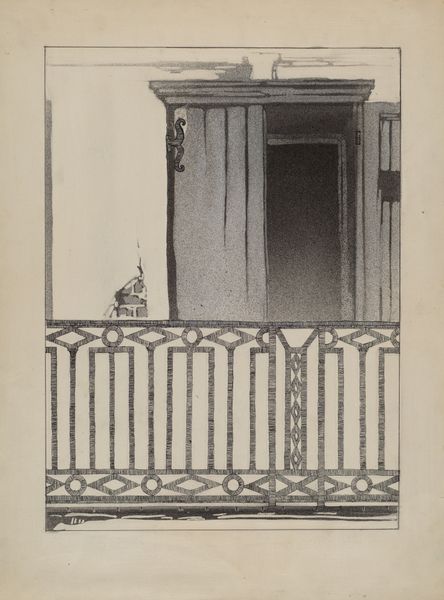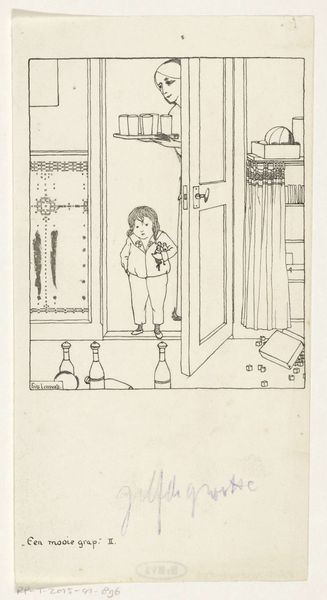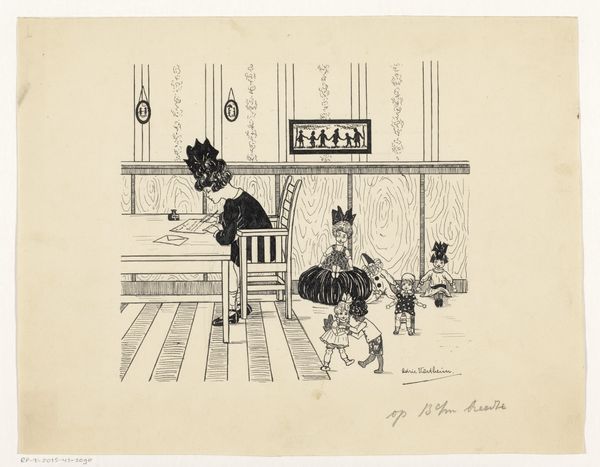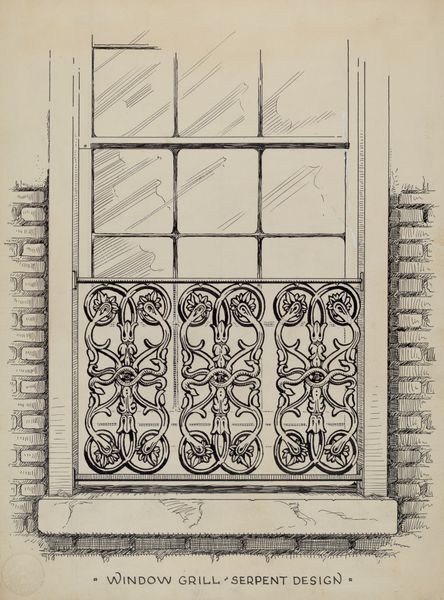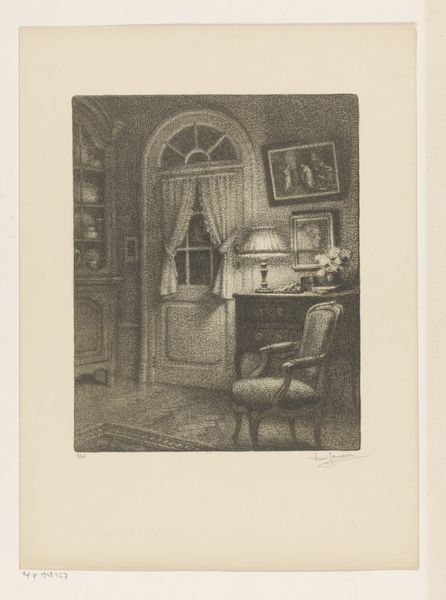
#
quirky illustration
#
blue ink drawing
#
childish illustration
#
old engraving style
#
cartoon sketch
#
personal sketchbook
#
illustrative and welcoming imagery
#
ink drawing experimentation
#
sketchbook drawing
#
cartoon style
Dimensions: height 246 mm, width 187 mm
Copyright: Rijks Museum: Open Domain
Editor: This is "Gazette du Bon Ton, 1921 - No. 2, Pl. VII: Coin de Fenêtre," a piece made in 1921 by Lucie Renaudot. It almost looks like a set design! The colours and angles feel very stylised. What do you make of it? Curator: This image is fascinating because it speaks volumes about the commercial art world in post-war Paris. "Gazette du Bon Ton" was a high-fashion magazine, catering to an elite clientele. The print is less about depicting reality and more about selling a lifestyle. Notice the focus on the interior. Editor: Yes, it feels less about capturing an exact moment and more about constructing an ideal one. Do you think it reflects the broader social shifts of the time? Curator: Absolutely. After World War I, there was a collective desire to rebuild, to embrace modernity, and to enjoy the pleasures of life. This print offers a glimpse into that aspiration. Magazines like "Gazette du Bon Ton" actively shaped these desires, presenting idealized versions of domesticity and luxury that women were encouraged to emulate. How does that strike you? Editor: It’s interesting how the magazine played a role in creating this demand for particular tastes. The illustration itself almost looks deliberately artificial. The stylized design and bold color palette contribute to a very manufactured, yet aspirational feel. Curator: Precisely. Art became a tool to project and popularize those specific cultural values. A reflection of status and modern identity. Editor: That's really broadened my perspective. It’s more than just a pretty picture, it is active in influencing taste. Curator: And art doesn't exist in a vacuum. Everything contributes!
Comments
No comments
Be the first to comment and join the conversation on the ultimate creative platform.
